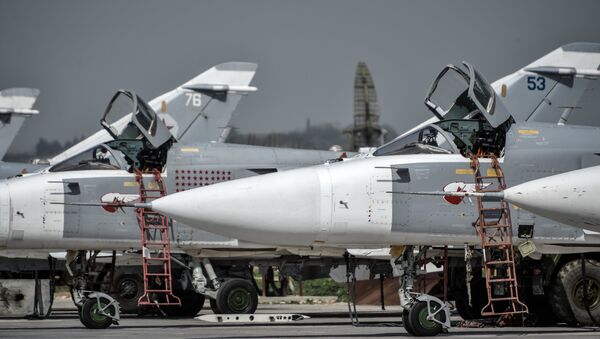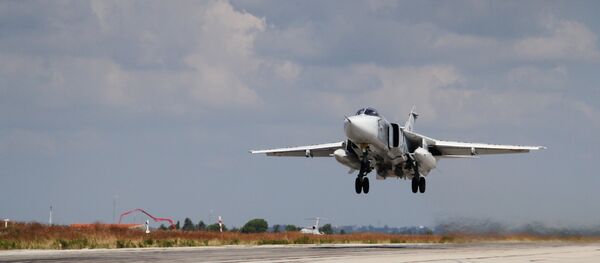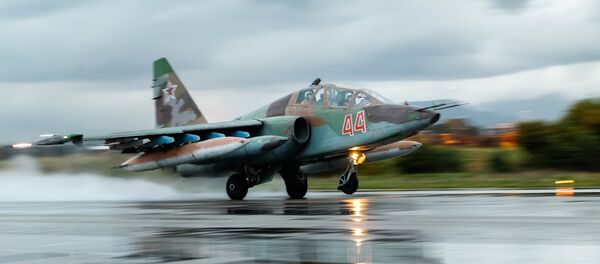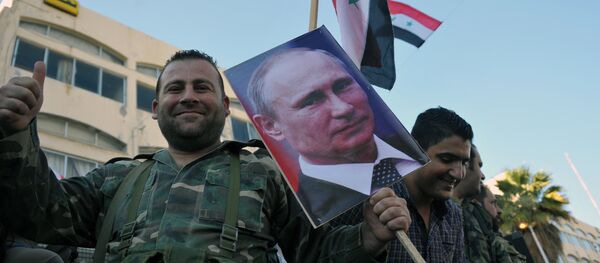Regardless of Western media's attempts to downplay the success of Russia's operation in Syria, there is no doubt that Moscow has accomplished the objectives it set at the beginning of the joint Russo-Syrian campaign against Islamic terrorists.
"Russia intervened at the height of this shift in which Damascus found itself forced to make a series of strategic withdrawals. While the force Russia brought was relatively small compared to typical Western military interventions, operations were intense and undoubtedly effective. Virtually all of the terrorist gains made during the mid-2015 offensive were rolled back or significantly contested, while logistical lines feeding Western terrorist proxies from Turkey were exposed and destroyed," Bangkok-based geopolitical analyst Tony Cartalucci writes in his analysis for New Eastern Outlook.
Cartalucci stresses that there was a coordinated attack of Islamists in northern and eastern Syria which threatened to deal a mortal blow to Damascus and the Syrian Arab Army.
"Both operations were large enough to implicate significant planning and staging, perhaps even months ahead of the coordinated, two-front offensive," the analyst remarks.
Russia's military involvement, kicked off in response to an official request from the Syrian legitimate democratically-elected government, has upset the jihadists and their powerful sponsors' applecart.
Now, that the jihadists' advance has been averted and the peace process has begun, "the bulk of necessary combat missions for Russia are indeed over."
Not by any means, the geopolitical analyst underscores.
"Russia will continue to maintain enough of a presence to respond effectively to any shift back in favor of the West's proxies — proxies who are supposed to be observing a ceasefire, and who — if they violate it now in the belief that Russia will no longer respond — will not only expose their own treachery and that of their Western sponsors, but will justify a wide range of retaliatory actions to be taken by Syria and its allies — including Russia," Cartalucci stresses.
In his recent Op-Ed for Russia Today Dr. Alexander Yakovenko, Russian Ambassador to the United Kingdom of Great Britain and Northern Ireland, points out that Russia's naval base in Tartus and its air base at Hmeymim in Syria "will function as before." Russia continues to monitor the ceasefire and is "creating conditions for the peace process."
Russia is keeping an eye on the situation in Syria and is ready to take serious measures if necessary.
Summing up the results of the Russian operation in Syria on March 17, President Putin remarked that Russia's military forces could be re-deployed "in literally a few hours" in Syria if such a need arises.
"If needed, Russia can boost its air group in the region in literally a few hours to a size corresponding with the situation and use the whole arsenal of our opportunities. We would not like to do that as military escalation is not our choice, that's why we rely on the common sense of all parties, on the commitment of the [Damascus] authorities and the opposition to the peace process," the Russian President stressed.
"Of course, we will continue to support the Syrian legitimate government. It will be financial aid, arms supplies, military training… It will be intelligence support, aid in the planning of operations, as well as direct support — the use of the Russian Aerospace Forces," Vladimir Putin added.
Russia's message is clear: it is committed to the ongoing peace process and will put effort into averting any escalation of violence in the region.






